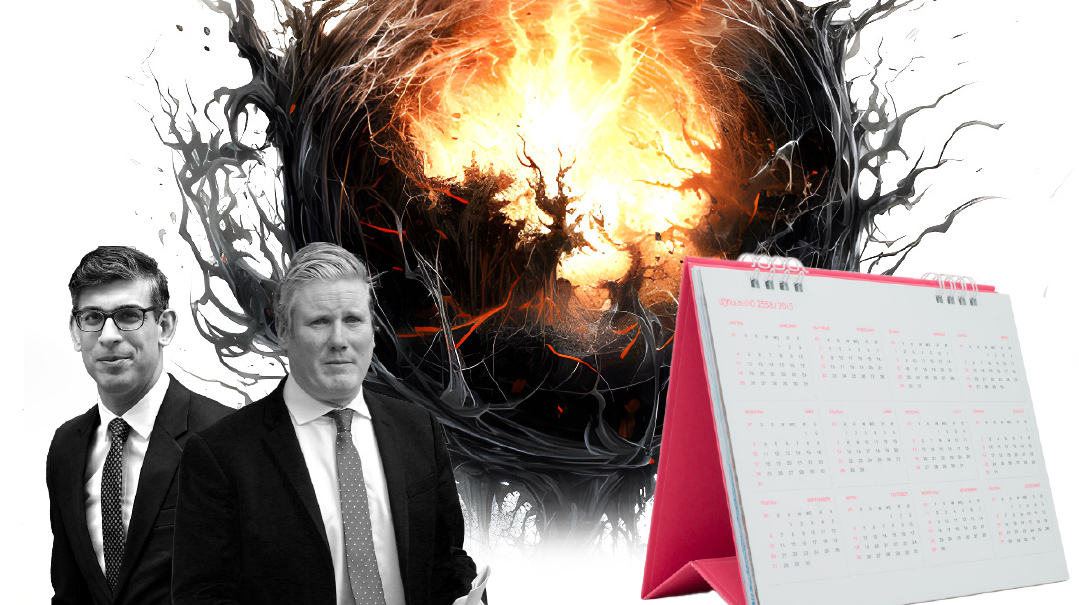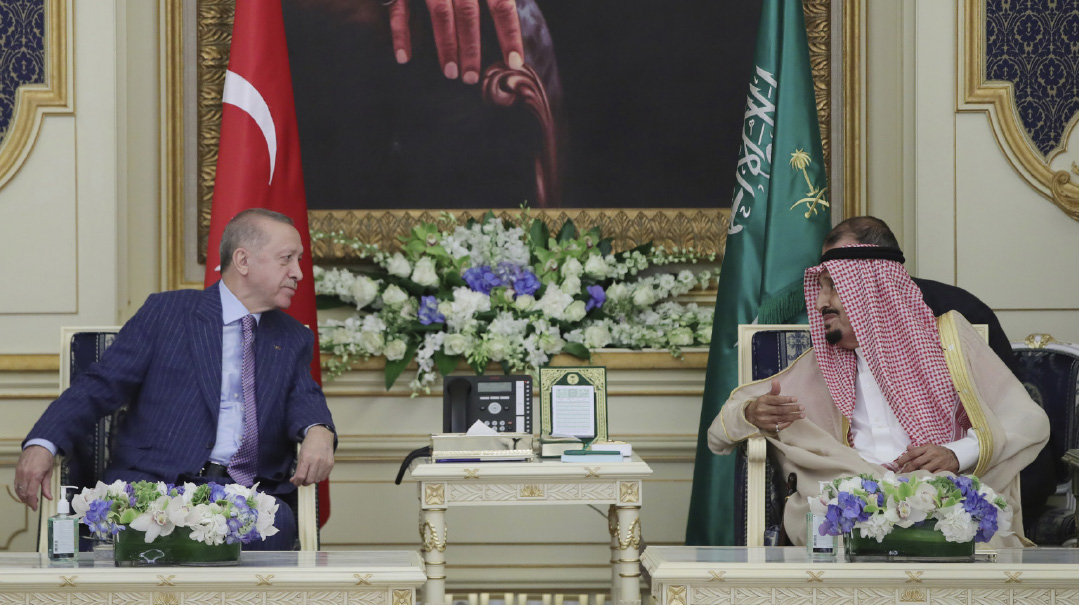Forecast 2024: Geopolitics

Mishpacha’s experts predict the year ahead

The Dots of War
Like a cross between a goldfish and an ostrich, America will spend 2024 both burying its head in the sand as geopolitical storms rage and losing interest in whatever foreign policy moves it has already undertaken. The results won’t be pretty: an emboldened Iran left to spread its devilry across the Middle East, Ukraine struggling to repel a resurgent Russia, and conceivably a Chinese assault on Taiwan.
Bold predictions? Hardly. What used to be known as the liberal world order is under attack by the revisionist powers, but the West prefers to douse pockets of flame, while ignoring the fact that the forest is ablaze.
Start with the goldfish effect. Even before Congressional deadlock shut off the Ukraine aid tap, it wasn’t lost on Moscow that the Western-led effort was running out of steam. First, Ukraine’s long-awaited summer offensive fizzled. Then, Kyiv’s defense chief admitted that his country was out of options.
The failure wasn’t just due to Moscow’s overwhelming power; it was also a function of the Biden administration’s ambivalence over the war. The US has supplied large amounts of weaponry, but the hesitance to go all-out to defeat Russia has been palpable.
The faltering American and European effort to support Zelensky has telegraphed the dilettante nature of the free world’s foreign policy. We’ll fight for democracy, it says — until the going gets tough. At which point the foreign policy establishment sails off to the other side of the fish bowl in search of the next shiny thing.
A second, related weakness is an ostrich-like, willful failure to connect the dots that link the various foreign policy crises. Tehran has activated Hamas, Hezbollah, and the Houthis, yet instead of unleashing Israel to deliver a knockout blow to all three, its Western allies prefer to bully Jerusalem into leaving them intact. The calculus is simple: Iran is a scary beast, so best not to provoke it. In the process, not only is Israel betrayed, but a golden opportunity to cut Tehran down to size is lost.
Throw in the possible return of an isolationist president to the Oval Office, and if you’re China’s President Xi, Taiwan is looking like an increasingly delectable morsel. On the evidence of Ukraine and Gaza, the Communist leader might reasonably conclude that with flighty America, it’s a question of sitting out the storm.
What ails the West? How did societies that defeated the Soviet Union degenerate into such timidity, even while they still hold so many cards?
The answer lies in the realm of ideas. For elites on both sides of the Atlantic, there is more to loathe than celebrate about their own societies. Since the West itself is irreparably tainted, they think, its exercise of power is inherently evil.
The enmity that many academics and their clones in government and the media exhibit to Israel parallels their distaste for any assertion of Western identity, such as opposition to mass immigration.“Der Mensch tracht und Gott lacht” runs the old Yiddish proverb about Divine intervention in human affairs.
As Westerners celebrate the onset of 2024, blissfully ignoring their own geopolitical and cultural hara-kiri, the strongmen in Tehran and Beijing must be rubbing their hands in glee. It’s only with Hashem’s help that they won’t have the last laugh.
Hair Raising
What is it with right-wing politicians and over-the-top hair? First was Donald Trump’s age-defying hairdo, then came Boris Johnson’s blond mop; a few weeks ago, Geert Wilders brought his towering bouffant look to the frontline of Dutch politics. Most recently, Javier Milei’s unruly locks took up residence in La Casa Rosada, Buenos Aires’ presidential palace. Armchair Psychology 101 suggests the logic behind the coiffures: Norm-breaking politicians proclaim their defiance of the world in every gaudy strand of hair. The sight of so many tresses at the top of world politics is a sign that populism is still with us. We should expect a hair-raising year ahead.
New Year, Shmoo Year
There is admittedly something awkward about running a year’s end project when — Jewishly speaking — the year is only a few months old. But in this nod to the political cycle, there’s a chance to observe something about the sad adoption of Xmas motifs in certain quarters of Israel in recent years. Long a feature of the American assimilated Jew, Israeli secularists have been catching up recently, with media reports of a rising number of Jewish families decorating bauble-laden trees. It’s a disturbing phenomenon that speaks of just how far it is possible to drift in secular Israel.
In the shadow of war, though, there has been an unmistakable sense of religious engagement for many secular Israelis, witnessed in the frequent sightings of nonreligious soldiers proudly wearing tzitzis — despite the lack of a kippah. As the battle ends and thousands of reservists return to civilian life, may they take those religious experiences with them and roll back the secularism that suffuses so many areas of life in our Holy Land.
1997
The year that Tony Blair swept the Labour Party to a decade in power is back in UK political chatter as Rishi Sunak’s Conservatives grimly await a wipeout in the general election to be held sometime next year. Politico’s poll tracker shows Keir Starmer’s Labour ahead of the Tories at about 43 to 24 percent — a gap that has held steady for the last year.
The Conservative plight is remarkable given that in 2019 Boris Johnson defeated Jeremy Corbyn in a landslide.
But that was all before Covid and scandal took the sheen off of Johnson, leading to his resignation and the disastrous rise and fall of his short-lived successor, Liz Truss. Rishi Sunak may be a safe pair of hands, but at this stage, the conventional wisdom is that for the Conservatives, it’s 1997 all over again.
What’s in a name?
By next October 7, expect the emergence of a settled name for the war that began with Hamas’s murderous rampage. The anodyne “Iron Swords” moniker dreamed up by some Defense Ministry apparatchik will go, but the eventual name may not be decided by government fiat.
Just as the label “Yom Kippur War” stuck because it echoed the Judgment Day nature of the Egyptian attack when Israel was fasting, a similar feeling could well guide the naming of a war that turned the joy of Simchas Torah into mourning. “Go out and see how the people are acting,” is one way the Gemara uses to decide the halachah. Will a similar inspiration decide the name of this terrible war?
(Originally featured in Mishpacha, Issue 992)
Oops! We could not locate your form.







